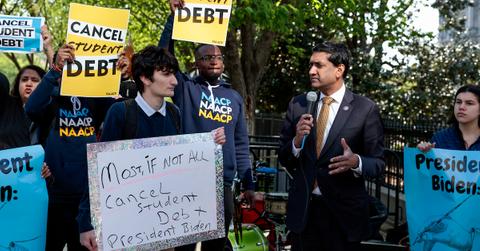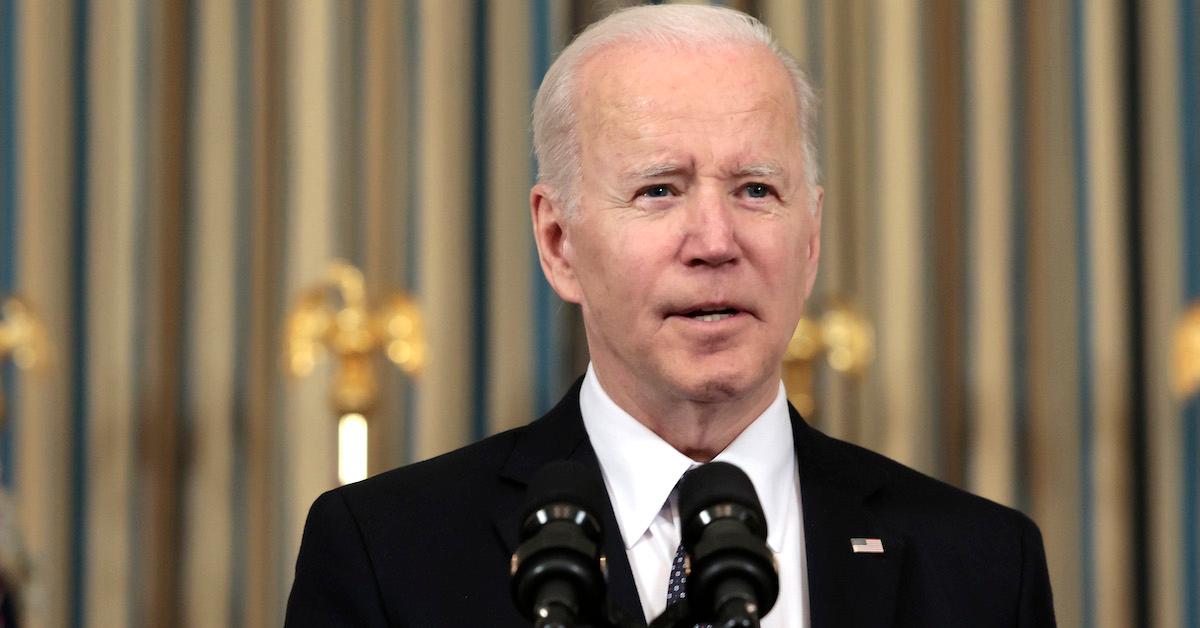Fact Check: Did Joe Biden Promise Student Loan Forgiveness?
Many people on social media claim Biden promised student loan forgiveness when he ran for president, but is that actually true? Let's take a look at what he said.
April 29 2022, Published 2:50 p.m. ET

Since taking office in January 2021, no American has had to make a payment on their federal student loans. President Joe Biden has extended the moratorium on repayment several times, with the latest extension pushing the date to August 31, 2022.
Biden is expected to make a decision to forgive some amount of debt for some or all borrowers before repayment resumes, with some demanding he makes good on his promises. But did Biden actually promise student loan forgiveness, or are pundits putting words in his mouth?

The hard truth is, Biden never promised student loan forgiveness.
Although nearly every Democratic primary candidate had some aspect of student loan relief in their campaign platforms, Biden was actually among the more conservative candidates on the matter. While some of his opponents in the race to the top of the ticket promised up to $50,000 in forgiveness, Biden was more comfortable with $10,000 and expressed reservations about higher earners benefiting as much as lower-income individuals.
Despite urgings from legislators like Senate Majority Leader Chuck Schumer (D-NY) and Sen. Elizabeth Warren (D-Mass.) that the president could forgive as much as $50K in debt "with the flick of a pen," Biden has typically responded that the senators should work with their colleagues to get a bill through Congress and onto his desk if they truly want student debt relief.
Actually, Biden has been fairly consistent on his position that any student debt forgiveness to go through the legislative process rather than an executive order, and his reasoning makes a lot of sense for many progressive pundits.
The problem with student loan forgiveness by executive order is its fragility.
The advantage of an executive order is its expediency — especially with the slimmest possible majority in the Senate making it difficult if not impossible to pass student loan forgiveness through both houses of Congress. But the huge drawback is that EOs are only as enduring as the presidents who sign them.
As soon as a president leaves office, their successor can undo any and all previous executive orders. Nobody knows this better than Biden himself, who within hours of his swearing-in had signed 17 executive orders, 9 of which reversed EOs issued by Donald Trump.
Were the next president to oppose student loan forgiveness, they could undo such an EO on day one, meaning millions of people who thought their loans were a worry of the past could again be on the hook for the debt.
As frustrating as the legislative process has become, with filibusters and a deepening divide between the parties making it ever more difficult to achieve bipartisan cooperation on any issue, the biggest advantage of a bill is that it's difficult to undo once enacted. Just look at the Affordable Care Act. Despite the Trump administration and Republicans eagerness to do away with Obama's healthcare legacy, undoing it would have put many legislators' seats in jeopardy and multiple votes to strike it down proved unsuccessful.
